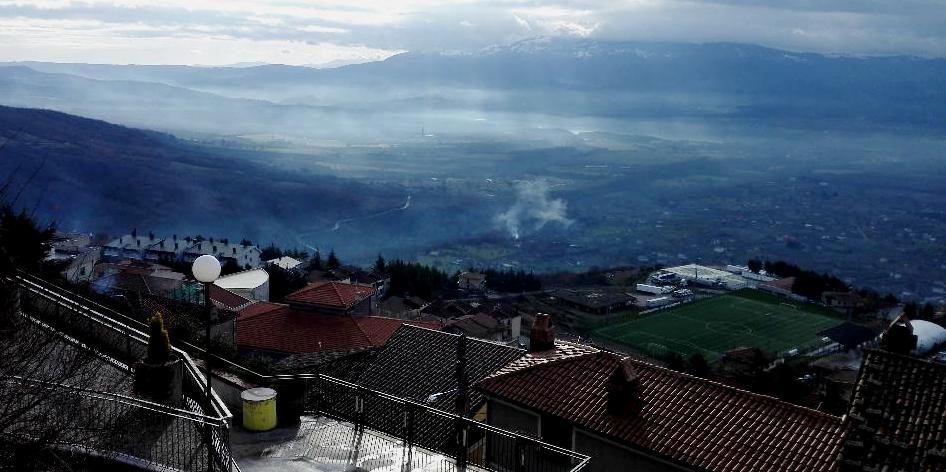The hydrocarbon sector threatens health and environment in Italy, but fossil fuels continue to be the cornerstone of the national energy policy.
The production of fossil fuels is still considered of strategic interest in Italy. As of the end of 2015, 114 exploration and 202 exploitation licenses were in force on national territory. Such activities pose a huge threat to the preservation of the environment and the health of local communities. The recently uncovered Val d’Agri affaire exemplifies the damage that oil companies, and especially ENI, are causing. Reconsidering energy policies appears vital for the wellbeing of the country and its inhabitants.
Val d’Agri: an ongoing environmental tragedy
Val d’Agri is a wild valley in Southern Italy, in Basilicata region. It is surrounded by mountains and named after the river flowing through it. It also holds the largest onshore oil field in Europe, uncovered at the beginning of the last century. Here, in the 1990s, ENI began prospecting and drilling activities. For years, the company continued exploring and extracting unhindered, violating environmental and health standards and using corruption to avoid controls. Only at the beginning of 2016 its unethical and illegal conduct was exposed.
In the past, agriculture and farming flourished in the valley. Locally produced olive oil, wine, wheat and milk were exported all over Italy. Over 20 years from then, all is left is an impoverished and polluted territory. In the towns near the oil fields, Viggiano and Grumento Nova, the mortality and hospitalization rate is higher than the regional average, as reported by an interdisciplinary study published in 2017. The same study established a link between the high incidence of diseases of the circulatory and respiratory systems and exposition to the emissions of the oil centre. But beside health impacts, ENI’s activities took away from the communities their sense of belonging to the land. Now locals feel that their natural resources are compromised, and this is affecting their own identity. According to their perception, nature shifted from life source to deadly danger.
In March 2016, five high-profile ENI employees and a former local mayor were arrested. The then Italian Minister for Economic Development was accused of conflict of interest with ENI and has resigned. The investigation uncovered that the emissions of the Val d’Agri oil centre systematically exceeded the limits allowed, but ENI managers tampered with the data sent to inspectors to avoid fines. In addition, the hazardous waste coming from oil extraction and treatment was arbitrarily classified as non-hazardous and disposed of with illegal procedures.
The process is still ongoing, but in the meanwhile the oil centre was authorized to reopen and to restart extraction activities, amidst the bewilderment of environmentalists and concerned citizens.
Why is Italy still extracting oil?
The hydrocarbon industry in Italy is dominated by ENI, the world’s 12th oil supermajor identified by the world-famous six-legged logo. Val d’Agri is only one of the cases of pollution and illegality that the company is involved in. However, it continues to be the cornerstone of the Italian energy strategy, and the government is not planning to phase out fossil fuels anytime soon.
In 2019, it is expected that as much as 7.5 million tons of oil will be extracted nationwide, 6.4 from Basilicata. The government is, after all, heavily supporting the hydrocarbon sector. In 2016, it directly and indirectly subsidized fossil fuels for €14.8 billion. This tendency is reflected in the laws adopted in the last years, such as the so-called “Unlock Italy” decree, approved in 2014.
The research and exploitation of fossil sources has been usually justified with the need of making Italy more self-sufficient in the energy sector. It is true that 76% of energy consumption comes from imported sources, especially from Russia. However, the investments planned by the government seem to go in another direction. The Trans-Atlantic Pipeline (TAP) project, widely-opposed by local communities, is maybe the best-known example. The pipeline would connect Italy to Azerbaijan, thus reinforcing dependence from foreign supply.
Italy has instead a huge potential in renewable energy still largely unexploited. Completing the transition to renewables by 2050 is feasible, and would create jobs, have multiple benefits on human health and environment, and reduce energy consumption.
Hope for the future
It is clear that the government’s energy policy does not serve the interests of the population. Self-sufficiency is invoked when convenient, but in truth the alliance between political forces and companies has overcome the principles of public good and environmental protection.
However, local communities are beginning to realize the impacts of the hydrocarbon industry and to unify their protests against companies and authorities. Increased awareness and cooperation between local committees are crucial to achieve the reconsideration of energy policies.














Leave a Comment
Your email address will not be published. Required fields are marked with *